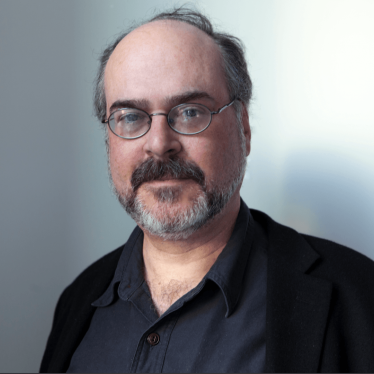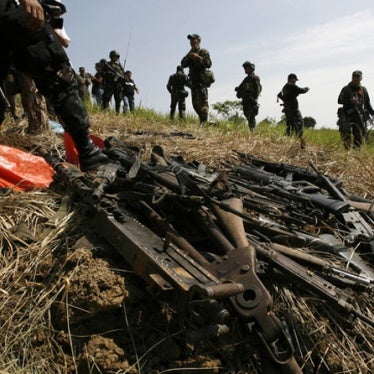Manila One year ago this week, the cold-blooded shooting of 58 people on a scrub-strewn hilltop brought international attention to the Philippines' southern island of Mindanao. A powerful local politician allegedly sought to prevent his rival from running for governor by killing the man's wife and entourage of supporters and journalists as they traveled to register the candidacy at the Maguindanao provincial elections office.
The Maguindanao massacre could have been the story of how a local tragedy resulted in national reforms. The Philippine government has at least done the right thing by prosecuting the key politicians implicated: Andal Ampatuan Sr. and Jr., among others. Their trial for murder is under way.
However, the larger problems remain unaddressed. The government has not brought all those responsible for the massacre to justice, ended the Ampatuans' reign of terror in Mindanao, or, most importantly, addressed the broader issue of private armies and abusive militias in the Philippines. The security forces have been slow to arrest those implicated in the massacre. Of the 195 suspects, 112 remain at large. Most of these are the militia members, police officers and soldiers that made up the Ampatuans' "private army."
Nor has the government even done all it can to end, once and for all, the Ampatuans' criminal dynasty in Maguindanao province. Recent Human Rights Watch research has uncovered a history of Ampatuan abuses going back two decades with at least 50 incidents of killings, torture, abductions and rape. The family was ruthless in their use of force to obtain power, and no less ruthless in maintaining it. In just one example, after a bombing in the conflict-plagued province in 2002, the Ampatuans rounded up a bunch of suspects, tortured them with chainsaws and killed them.
Such brutality didn't end with last year's massacre. At least three potential government witnesses have been killed by persons linked to the Ampatuans. One of those targeted, a former militia member who was himself involved in the killings, was gunned down after he and Human Rights Watch tried for months to have the government provide him with witness protection. No one has been charged for these killings.
That the Ampatuans ran Maguindanao using the deadly practices of a Mafia family is not news. What is most disturbing, though, is the extent to which their "private army" was a recipient of public largesse. The police and military not only shielded the family from criminal prosecution, but actively participated in their security force as well. The weapons caches uncovered on the family's estate following the massacre were not handguns and rifles purchased on the black market, but mortars, grenade launchers and assault weapons used by the military-with enough ammunition to arm a combat-ready force.
This support reached all the way up to the administration of then-President Gloria Macapagal Arroyo, who depended on the Ampatuans for votes (including some towns in Maguindanao that voted 100 percent for her in the disputed 2004 elections) and as a bulwark against Moro separatist groups in the region.
While the Ampatuans may now be the most notorious ruling family in the Philippines, their private army is just one of more than 100 such groups in the country. The new president, Benigno Aquino III, pledged to eliminate private armies during his election campaign this year, but he was careful to exclude various officially sanctioned paramilitaries that actually made up the bulk of the Ampatuans' force. For two decades such militias have committed killings, torture and abductions with impunity. Since taking office, Aquino has appointed task forces to investigate two of these private armies, but otherwise has done little.
If the Philippines is going to shed its image as a collection of feudal fiefdoms and fully join the ranks of modern democracies, Aquino will need to eliminate the private armies and the abusive government-backed militias once and for all. Powerful politicians should not be able to buy military weaponry. And when abuses do occur, all those responsible need to be brought to justice. Ever since the "People Power Revolution" of 1986, the Aquino name has resonated as a symbol for the promotion of human rights. The current President Aquino needs to act decisively to renew that reputation.
James Ross, legal and policy director at Human Rights Watch, was in Manila to release a new report on killings in the southern Philippines.








